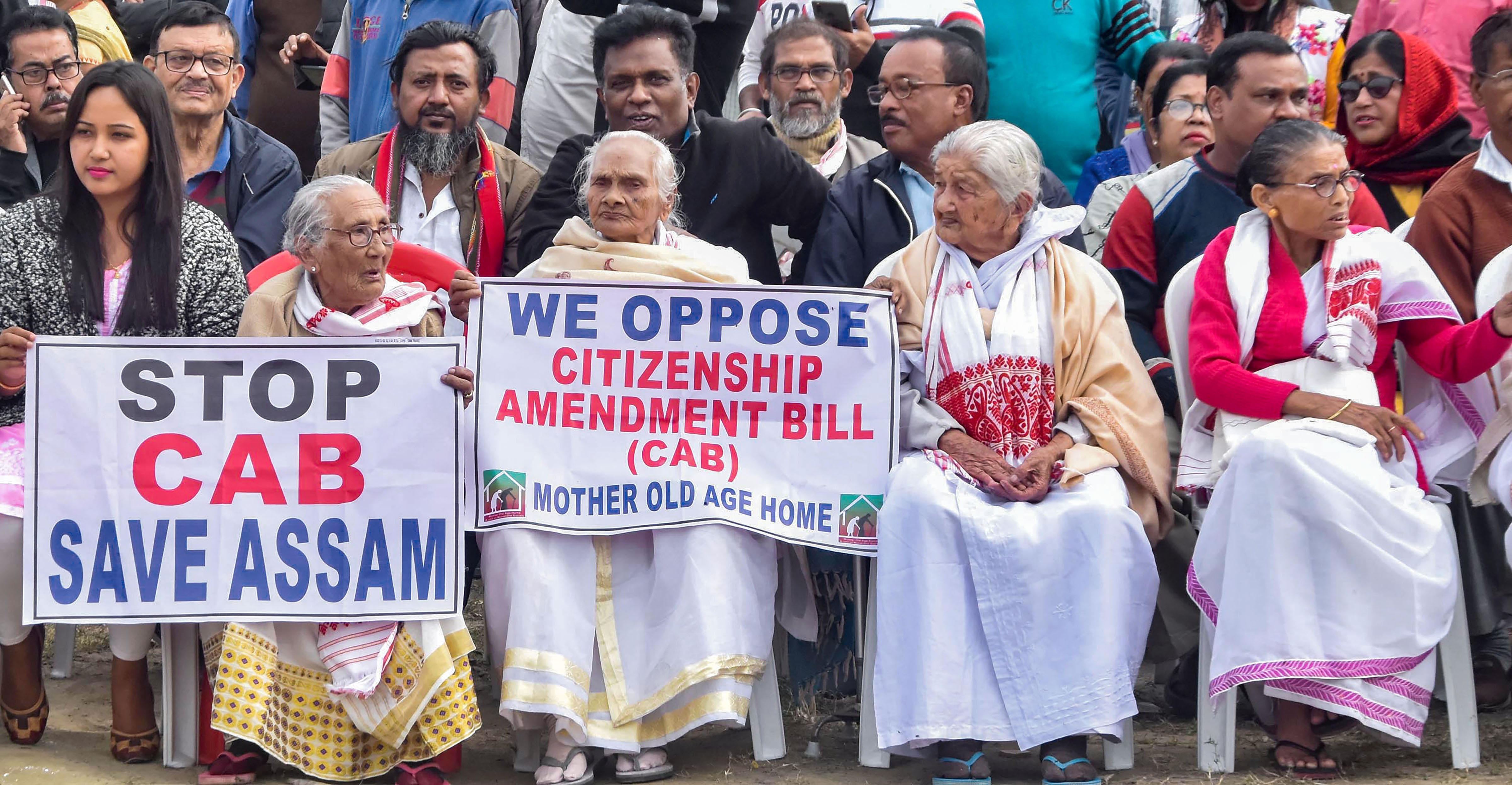
Regional parties in NE, East take varied positions on CAA

The enactment of the new citizenship law has left BJP ally Asom Gana Parishad in a quandary following protests in Assam, with the party deciding to move the Supreme Court to scrap the Act, days after backing it in Parliament. It, however, is still a partner in the BJP-led NDA.
“We will take the legal route to seek revocation of the amended Act as the indigenous people of Assam are apprehensive that their identity, language might come under threat,” AGP leader Kumar Deepak Das had told PTI on Sunday (December 15).
However, the party looked like a divided house with its president and state minister Atul Bora appearing more resilient and accommodative.
He said on Sunday that the Brahmaputra Valley should be excluded from the purview of the law, which may be implemented in the Barak Valley. Barak Valley has vast Muslim population, besides substantial number of Hindu migrants from Bangladesh who stand to benefit from the new law.
Also read: Internet services suspended across Assam till Dec 16
The AGP had walked out of the NDA in January this year following the passage of the Citizenship (Amendment) Bill by the Lok Sabha. It, however, returned to the NDA fold as the Bill expired with the dissolution of the 16th Lok Sabha. It contested the Lok Sabha and state assembly elections in alliance with the BJP.
Here is how other regional parties stand on the issue of Citizenship (Amendment) Act (CAA) in the northeast and east:
(Assam) AIDUF: The party led by Badruddin Ajmal, the Lok Sabha MP from Dhubri, is completely against implementation of the amended law. The party enjoys support of a large number of Muslims in Assam.
(Meghalaya) NPP: The party is a BJP ally but has some reservations over the law and its leader and chief minister Conrad Sangma had met BJP chief Amit Shah after the passage of the CAB. Amit Shah has assured the party that the state’s interests will not be harmed.
(Sikkim) Sikkim Krantikari Morcha: A constituent of BJP-led Northeast Democratic alliance, the state’s ruling party had voted against the CAB in Parliament. The party’s stand is since Sikkim is covered under Article 371(F), where the state legislature’s concurrence is necessary to implement a central Act, it will not pass a resolution to make CAA applicable to the state.
Also read: Nagaland: Normal life hit in shutdown, 6 hour bandh called by NSF
(Tripura) IPFT: The BJP ally is opposed to the law.
(Mizoram) Mizo National Front, the ruling party in the state is an NDA constituent. It supported the CAB. The state is exempted from the purview of the new law.
(Manipur) No major regional parties active in the state. Congress and Left are opposed to the CAA. Amit Shah had said the state will be “protected” as it will be brought under Inner Line Permit (ILP). The areas under the “Inter Line” require Indians from other states to get “Inner Line Permit” to enter or pass through them. The BJP rules the state.
(Arunachal Pradesh) The state is covered under the ILP and is thus protected. The state has a BJP government. Only All Arunachal Students Union, part of Northeast Students Organisation (NESO), is opposing the Act.
(Nagaland) The ruling NDPP is a BJP ally. The new law brings Dimapur, hitherto the only district excluded from the ILP, under it. Since now the entire state is under ILP, the party, which runs a coalition government with the BJP, backs the new law.
Also read: Gamosa to Joi Aai Asom, the signs of pride that shaped Assam protests
(West Bengal) The ruling Trinamool Congress is vehemently opposing both CAA and NRC. It leader Mamata Banerjee is one of the foremost opposition voices against the new law.
(Bihar) Nitish Kumar’s JD (U) supported the CAB in Parliament but is opposed to the National Register of Citizens which the Centre wants across the country.
(Odisha) Biju Janata Dal, the state’s ruling party is not an NDA ally but supported the Centre in the passage of the new law.
(Jharkhand) The opposition Jharkhand Mukti Morcha is opposed to the CAA on the ground that religion should not be the criteria for grant of citizenship to Hindus, Buddhists, Sikhs, Jains, Christians and Parsis who fled to India because of religious persecution in Pakistan, Bangladesh and Sri Lanka.

